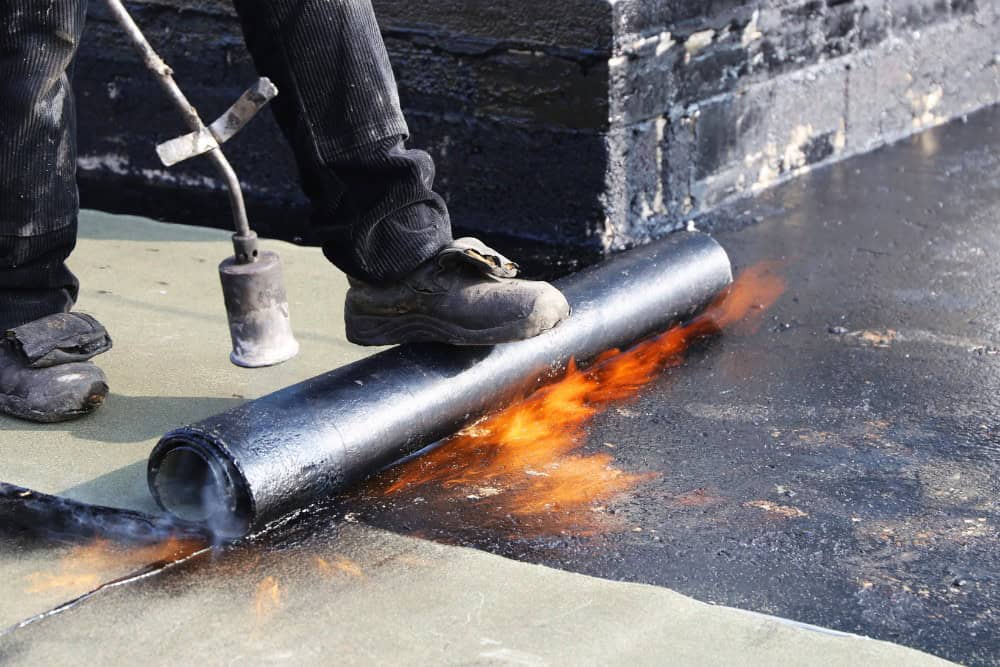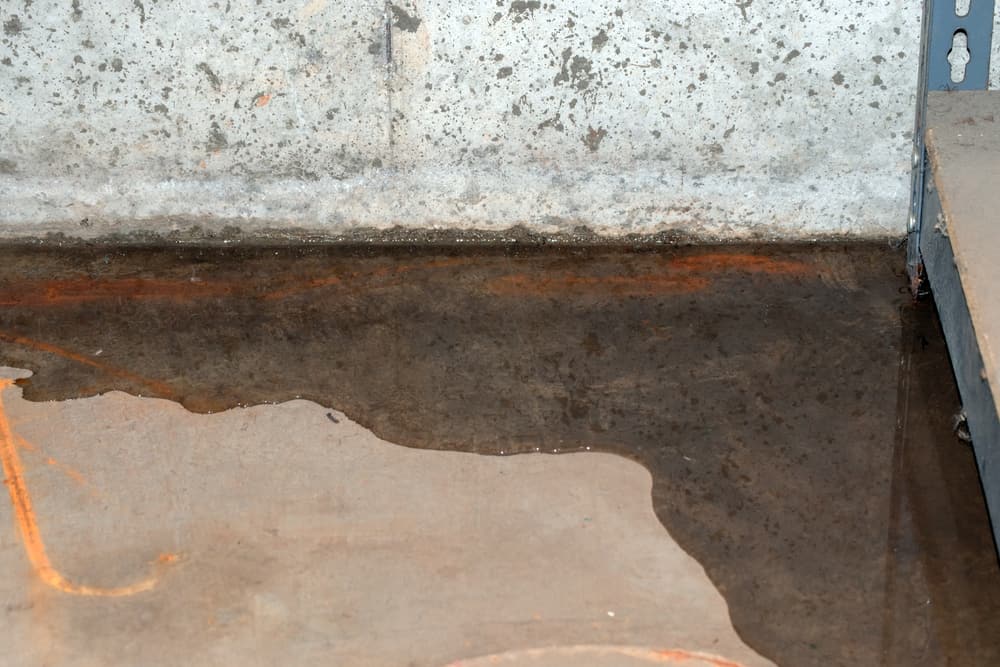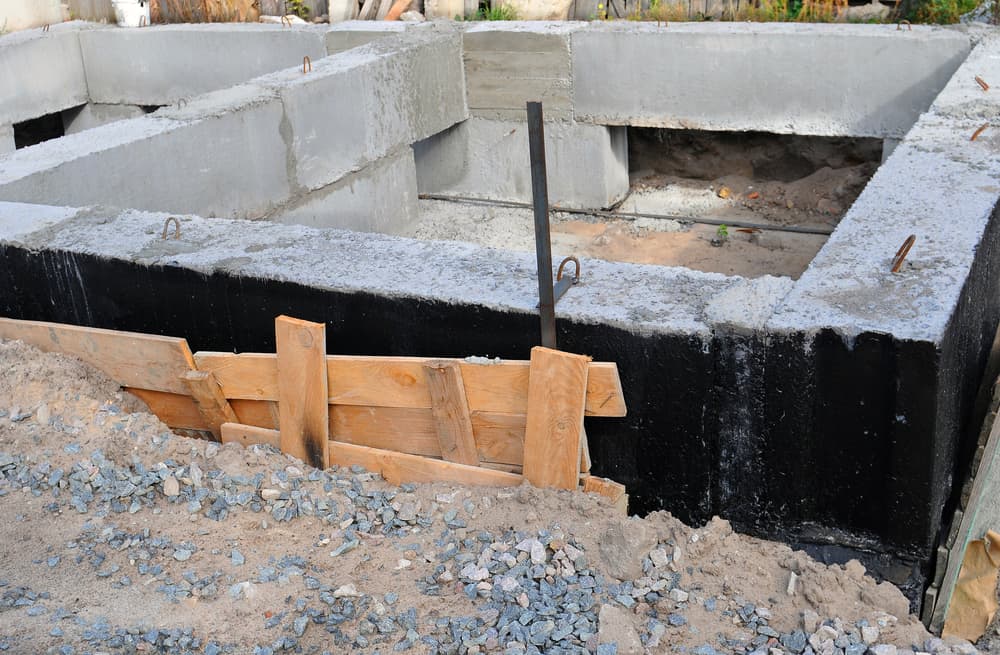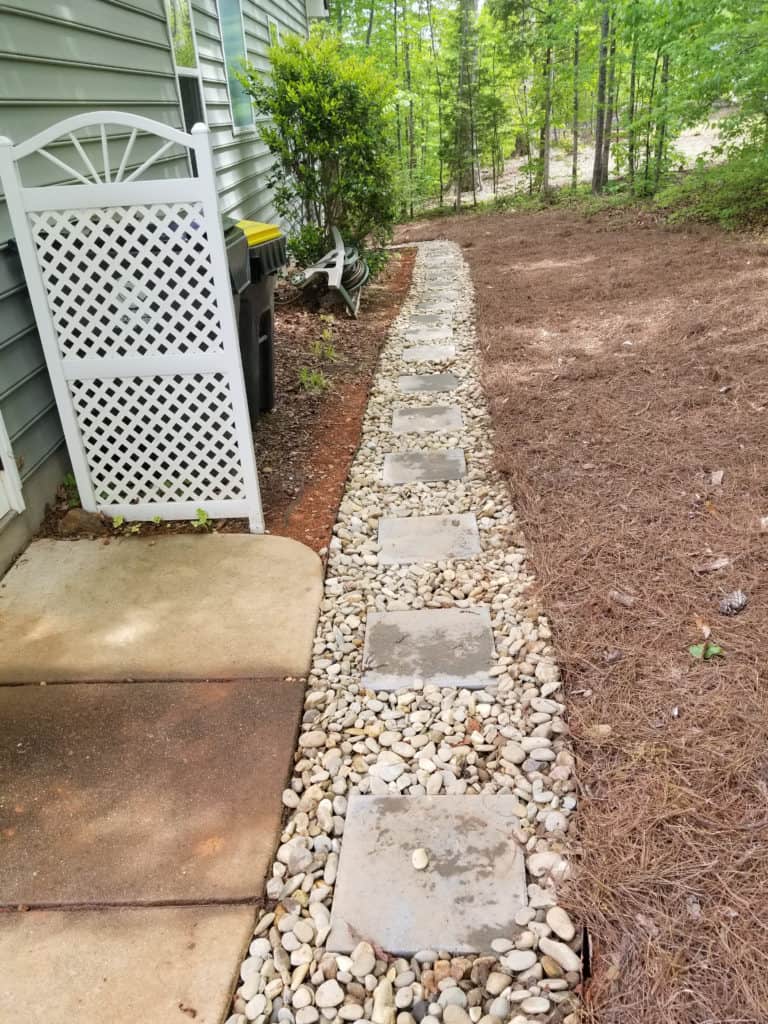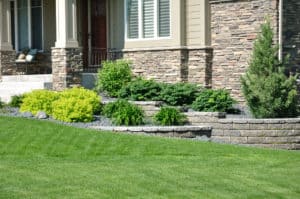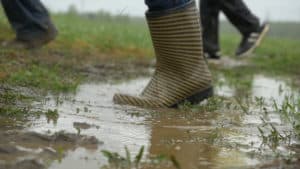Triangle Clay, Big Storms & Foundation Stress: A Pro Waterproofing Plan
October 9th, 2025Raleigh is a Clay‑and‑Cloudbursts city. The Piedmont’s shrink–swell clays can heave when saturated and contract hard in drought; meanwhile, short, intense rain bursts are trending up across the Triangle. Put those together and you get seasonal movement, hydrostatic pressure at the wall, and water seeking the path of least resistance—into basements and crawlspaces. Foundation waterproofing Raleigh isn’t a weekend chore; it’s an engineered response to geology and rainfall, delivered by specialists who know local soils and municipal rules. (deq.nc.gov)
Why foundation waterproofing Raleigh is a different problem set
Shrink–swell clay in the Triangle (Triassic Basin geology)
Much of Wake and neighboring counties sit on Triassic Basin sediments—red siltstones, mudstones, and clay‑rich soils with significant shrink–swell potential. These clays absorb water and expand, then shrink and crack as they dry, stressing foundations and opening pathways for seepage. North Carolina’s Geological Survey flags Triassic basins and the Carolina terrane as areas with the greatest expansive‑soil potential statewide. (deq.nc.gov)
Heavier downpours and short‑duration rain bursts
Raleigh’s hourly rainfall intensity has increased markedly since 1970. Climate Central’s analysis shows about a 22% rise in hourly intensity for Raleigh–Durham—exactly the kind of “too much, too fast” rain that overloads yard drains, swales, and footing drains. Regional and national assessments (EPA and NCA4) confirm heavier precipitation is a growing risk driver. This is the hydrologic backdrop for foundation waterproofing Raleigh—design for surges, not averages. (climatecentral.org)
What professional foundation waterproofing entails in Raleigh homes
Code context—waterproofing vs. dampproofing (IRC R406)
Under the International Residential Code, exterior walls that retain earth must be protected. “Dampproofing” resists soil moisture; “waterproofing” withstands liquid water and is required where high water tables or severe soil‑water conditions exist. In practice, many Triangle lots warrant waterproofing assemblies with positive drainage, because expansive clays and intense downpours create episodes of hydrostatic pressure even when the seasonal water table is moderate. Final decisions follow the prescriber/permit context and site conditions. (codes.iccsafe.org)
Exterior membranes + subsurface drainage as an integrated system
Durable outcomes come from systems, not single products. A professional design typically pairs:
- A continuous exterior waterproofing layer appropriate to wall material and backfill;
- A protected drainage layer and compatible footing drain to move water away;
- Positive discharge to daylight or an approved stormwater tie‑in.
Raleigh maintains a Stormwater Design Manual and homeowner guidance pages because drainage touches public as well as private infrastructure; plans must respect easements, rights‑of‑way, and discharge rules. That municipal context is one reason “DIY fixes” underperform—and why we route projects through inspection, design, and permitted build. (raleighnc.gov)
Where French drains, sump systems, and discharge planning fit
In Raleigh’s clay, surface grading alone rarely solves persistent intrusion. Subsurface measures—perimeter (French) drains, interior capture with sump pumping, and back‑up power—provide pressure relief and reliable egress for stormwater. FEMA guidance recognizes sump pumps as standard mitigation for below‑grade spaces in flood‑vulnerable settings; the key is correct specification and a robust discharge path. In our plans, French drains aren’t a “band‑aid”; they’re one engineered component inside a sealed, code‑aligned assembly. (fema.gov)
Prefer to see service detail instead of theory? Explore our Basement Waterproofing hub, French Drains, and Waterproofing Services pages for what we design and build—then book Drainage System Inspections to start the process.
Red‑flag symptoms that warrant a same‑week inspection
- Recurring seepage lines or damp “tide marks” on foundation walls after fast storms
- Efflorescence returning despite prior paint or patching
- Musty odors in finished spaces after heavy rain
- Seasonal widening of hairline cracks or new stair‑step cracking in masonry
- Persistent pump cycling during ordinary showers
Each points to either pressure at the wall, inadequate discharge, or both—classic triggers for foundation waterproofing Raleigh with a subsurface plan, not cosmetic patches. Raleigh’s Stormwater team also notes that intense, short‑duration storms can spike creek levels and flood‑adjacent parcels; many homeowners discover issues only after one of these bursts. (raleighnc.gov)
Next step: book a professional Drainage System Inspection and route the report to design within a week.
Our diagnostic workflow and plan building
Foundation + site survey
Our inspections combine interior and exterior readings: wall plumbness, moisture mapping, slab/joint conditions, and soil contact profiles. Outside, we assess backfill composition, settlement, and likely clay heave zones. We also confirm whether the lot lies near flood‑eligible areas per Raleigh’s public resources and whether private drainage easements constrain options—details that shape a compliant, durable plan. (raleighnc.gov)
Water path mapping (surface, subsurface, municipal interfaces)
Raleigh’s programs (e.g., Drainage Assistance) exist because runoff and public conveyances intersect with private parcels. Our team coordinates discharge routes that respect city requirements and the site’s limits. The design manual updates (2024+) underscore how dynamic local standards can be; our aim is to keep your fix aligned with today’s expectations and tomorrow’s rainfall. (raleighnc.gov)
Ready for a plan? Contact the team: Contact Us. Learn who will be on‑site on About Us, and browse field notes on News.
Local scenarios and likely remedies
Raleigh (inside the I‑440 beltline)
Older homes with mixed drainage retrofits often show wall dampness during quick hitters—storms that dump an inch or two in an hour. Given the 22% rise in hourly intensity since 1970, we typically pair an exterior waterproofing assembly with new footing drains and daylight or code‑compliant discharge. In tight urban lots, interior capture with pump redundancy may be the most practical way to manage peak inflows. (climatecentral.org)
Cary & Apex (Piedmont clay with newer subdivisions)
Builder‑grade damp‑proof coatings, landscaping over drains, and settlement can converge into seepage within 3–8 years. Here, foundation waterproofing Raleigh standards still apply: redesign to waterproofing‑grade membranes, protect the drainage layer, and preserve outlet capacity. Municipal easements and HOA stormwater rules often influence discharge—plan accordingly with professional design. (raleighnc.gov)
Garner & Clayton (fast growth on clayey sites)
Triassic sediments and high‑intensity storms make hydrostatic pressure the main villain. We often specify vented, protected drains, targeted relief points, and pump systems with documented test schedules; homeowners receive inspection logs to support future real‑estate transactions. Raleigh’s NWS office posts year‑by‑year climate plots—useful context when evaluating historic “worst weeks.” (weather.gov)
Durham & Chapel Hill (Triassic Basin edge conditions)
On the Durham sub‑basin margins, soil variability is real—tight clays interbedded with coarser layers. That variability is why we instrument during rain events, then finalize the assembly. The North Carolina Geological Survey’s Triassic guidance backs the caution: soils and shallow bedrock can complicate percolation and drainage performance. (deq.nc.gov)
What it costs to wait (and why pro, not patchwork)
Shrink–swell cycles leverage any weakness. A seasonal crack becomes a wet wall, becomes a moldy stud bay, becomes a flooring demo. FEMA and NFIP materials also remind owners that basements are high‑risk spaces within the flood hierarchy; without mitigation and documentation, damage and insurance complexity climb fast. Professionally designed foundation waterproofing Raleigh prevents that cascade—and it’s the only approach that aligns with code, municipal expectations, and a future of heavier downpours. (fema.gov)
Book your assessment:
- Waterproofing Services (capabilities and methods)
- Drainage System Inspections (start here)
- Contact Us (Raleigh & nearby)
FAQ (Schema‑Ready)
Q1. What’s the difference between dampproofing and waterproofing for my foundation?
Dampproofing resists soil moisture; waterproofing resists liquid water and is required where high water tables or severe soil‑water conditions exist under IRC R406. In the Triangle’s clay and heavy bursts, full waterproofing with managed discharge is often the durable choice. (codes.iccsafe.org)
Q2. Why are Raleigh homes especially prone to seepage after short storms?
Expansive Piedmont clays and Triassic Basin soils hold water, build pressure at the wall, and then drain slowly. Rising hourly rainfall intensity compounds the load on drains and pumps. (deq.nc.gov)
Q3. Do I need a “French drain,” a sump pump, or both?
That depends on wall construction, backfill, and discharge options. Many foundation waterproofing Raleigh plans pair protected footing drains with interior capture and pump redundancy for peak events. FEMA recognizes pumps as standard mitigation for below‑grade spaces. (fema.gov)
Q4. Can I tie my system into city stormwater?
It depends on your lot, easements, and current rules. Raleigh’s stormwater pages and Design Manual govern how private systems interact with public infrastructure. We design to be compliant and durable. (raleighnc.gov)
Q5. My home is near a creek. Does that change the plan?
Yes. The City’s flood‑risk guidance notes rapid level rises during intense rain. We factor floodplain status, safe discharge, and redundancy into design—and we document it for future buyers and insurers. (raleighnc.gov)
Q6. Is this something a handy homeowner can do?
No. This is not DIY. Raleigh sites require code‑aware design, correct materials, and compliant discharge. Hire a specialist with inspection, design, and installation under one roof.
Q7. How fast can you assess and propose a plan?
Our Drainage System Inspections queue moves quickly after large storms; we triage based on risk signs and get you a written plan.
Q8. Do you cover towns beyond Raleigh?
Yes—Cary, Apex, Garner, Clayton, Durham, Chapel Hill and nearby. See About Us for service areas and team info.
Sources
- NC DEQ — Expansive soils (shrink–swell clays) (NC Department of Environmental Quality)
- NC DEQ — Guide for Homeowners in the Triassic Basins of North Carolina (NC Department of Environmental Quality)
- Climate Central — Heavier Rainfall Rates in U.S. Cities (Raleigh–Durham view) (Climate Central)
- EPA — Climate Change Indicators: Heavy Precipitation (EPA)
- NWS Raleigh — Raleigh–Durham Climate Plots & Data (National Weather Service)
- NOAA NCEI — RDU Station Data (GHCND: USW00013722) (NCDC)
- International Residential Code (2021) — R406 Waterproofing & Dampproofing (ICC Digital Codes)
- FEMA — Residential Buildings with Basements (NFIP Guidance) (FEMA)
- FEMA — Hazard Mitigation Assistance Program & Policy Guide (FEMA)

